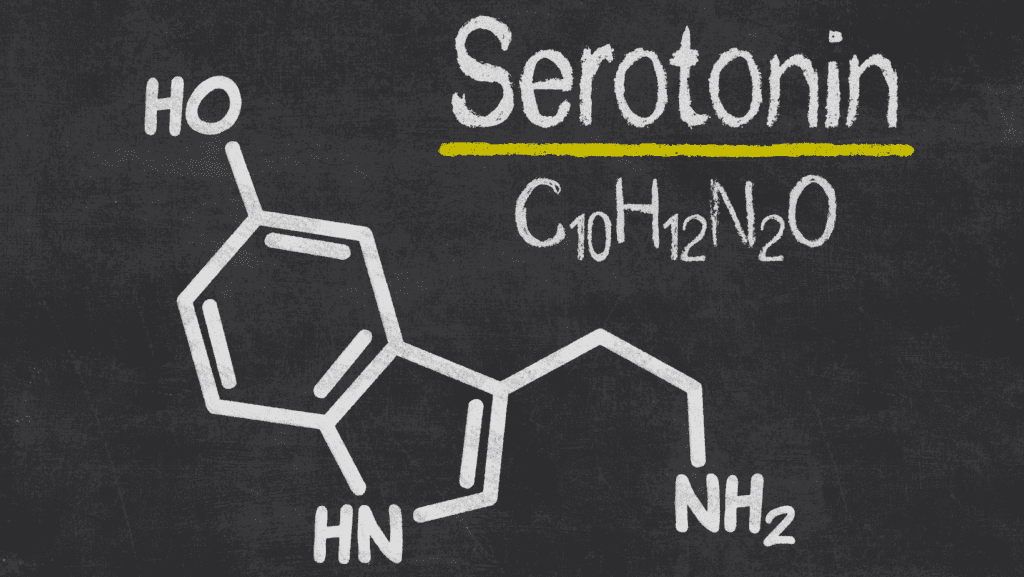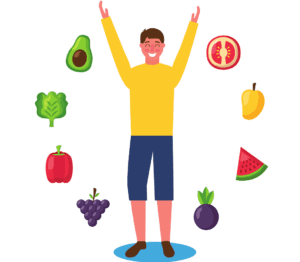 By John Mysz, LCSW –
By John Mysz, LCSW –

John Mysz is VSC’s full-time Licensed Clinical Social Worker (LCSW).
Well not really. But the food you consume has an incredible relationship to your health. We all know the importance of a good diet for physical health. All of our doctors have talked to us about food choices and blood pressure, cholesterol, body fat percentage, and even life expectancy. What is often failed to be mentioned is the ramifications for our mental health.
Serotonin is our body’s “feel-good hormone” – the one that regulates our mood and anxiety. When it is too low, we can experience depression and anxiety. A relatively new field, nutritional psychiatry, has been able to prove that diets have quite the correlation with serotonin levels and, therefore, depression and anxiety. One of the coolest things they have found is that over 90% of our serotonin is actually produced in our guts! After finding this, they decided to see how diets can affect our mental health.
Nearly half of Americans are vitamin D deficient and closer to 2/3rds of us do not consume enough Omega 3. Nutritional psychiatry has shown us that these two specific supplements aid in the production of serotonin in our bodies. Some psychiatrists now have been prescribing these supplements, or diets that have larger amounts of these, for their patients!
 Another reason to stick to that new year resolution diet is cortisol. Cortisol is kind of like our body’s stress hormone. When we are stressed, more cortisol is released which can send our bodies and minds into the classic “Fight or Flight” response. This is an evolutionary response that was once very helpful. When a human was starving or threatened, cortisol would be released which helped to regulate the body, shut down unnecessary processes to focus on the threat, help us escape from the serious threat, and then would eventually decrease when the stressor dissipated.
Another reason to stick to that new year resolution diet is cortisol. Cortisol is kind of like our body’s stress hormone. When we are stressed, more cortisol is released which can send our bodies and minds into the classic “Fight or Flight” response. This is an evolutionary response that was once very helpful. When a human was starving or threatened, cortisol would be released which helped to regulate the body, shut down unnecessary processes to focus on the threat, help us escape from the serious threat, and then would eventually decrease when the stressor dissipated.
Unfortunately, this evolutionary response still kicks in today when we are not threatened with our lives, but stressed out or eating improperly. And with chronic stress, cortisol levels remain high instead of dissipating because our bodies think the stressor is still a serious threat. When this happens, our bodies store more fat, blood pressure increases, we feel weak, we can have mood swings, and then a myriad of serious health issues emerge such as heart disease.
Fortunately, there are ways we can lower our cortisol levels in the body. I’ve talked about exercise, mindfulness, and therapy in the past which can be extraordinarily helpful. We can also change our diets to mediate these levels! It has been shown that foods with high added sugars and saturated fats increase these levels while diets with more whole grains, fruits, vegetables, and polyunsaturated fats have been shown to decrease this.
 There are many diets out there that are healthy, and even more that are at best ineffective, but at worst rather unhealthy. Nutritional psychiatrists, like Dr. Uma Naidoo who is the leading expert in the field, recommends diets like the Mediterranean diet which boasts low sugar intake, high Omega 3 and vitamin D levels, and plenty of fruits and vegetables. Check out the website below to look at her 6 pillars of nutrition. You do not have to become vegetarian or vegan to make these healthy choices that have been proven to improve mental health. I know it’s hard to make changes in your diet, so do so slowly and routinely, and find a balance that works for you!
There are many diets out there that are healthy, and even more that are at best ineffective, but at worst rather unhealthy. Nutritional psychiatrists, like Dr. Uma Naidoo who is the leading expert in the field, recommends diets like the Mediterranean diet which boasts low sugar intake, high Omega 3 and vitamin D levels, and plenty of fruits and vegetables. Check out the website below to look at her 6 pillars of nutrition. You do not have to become vegetarian or vegan to make these healthy choices that have been proven to improve mental health. I know it’s hard to make changes in your diet, so do so slowly and routinely, and find a balance that works for you!
Disclaimer: For those struggling with their mental health, it is my suggestion that you begin an exercise regimen if capable, but also reach out to myself, the EAP (Employee Assistance Program for counseling), or an outside mental health professional to help guide you through recovery. If you need help finding a therapist or other resources or just want to talk, I am more than happy to help. Stop on by, I’ll have candy.
John Mysz, LCSW
John Mysz is VSC’s full-time Licensed Clinical Social Worker (LCSW).
Relevant Resources:
6 Pillars of Nutritional Psychiatry
